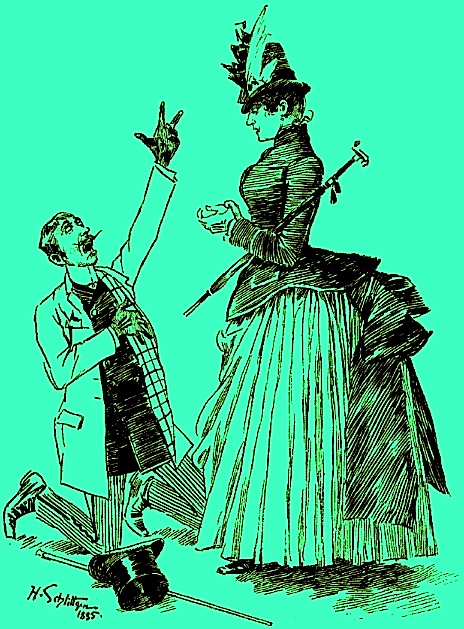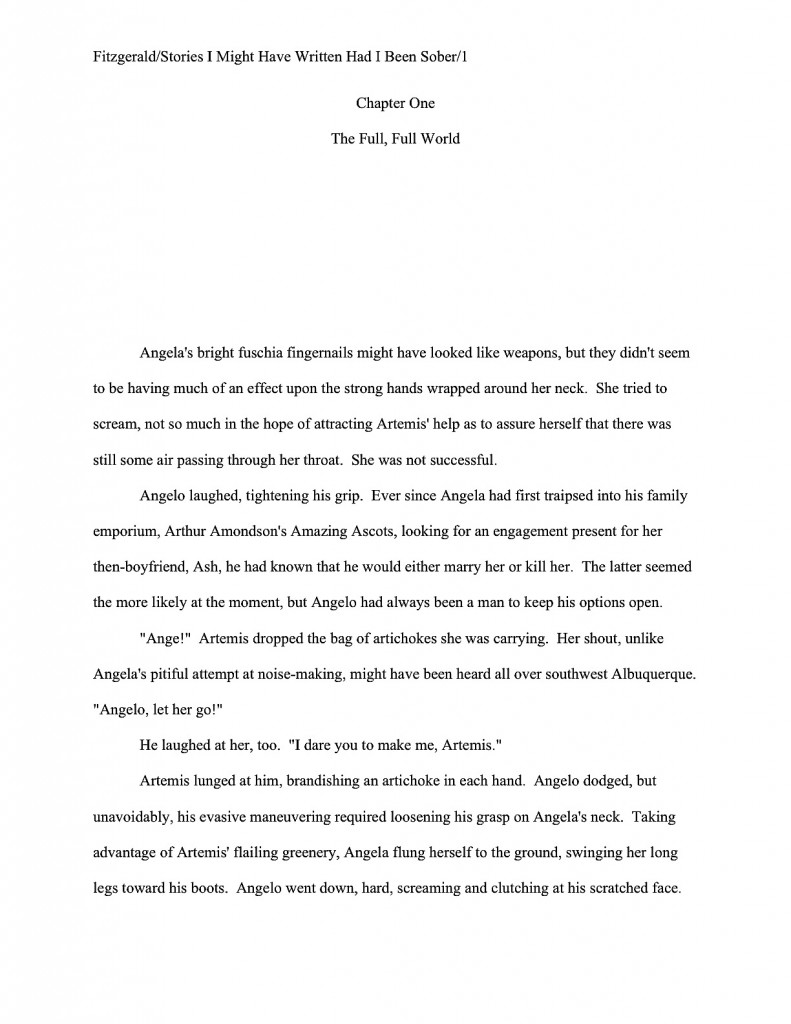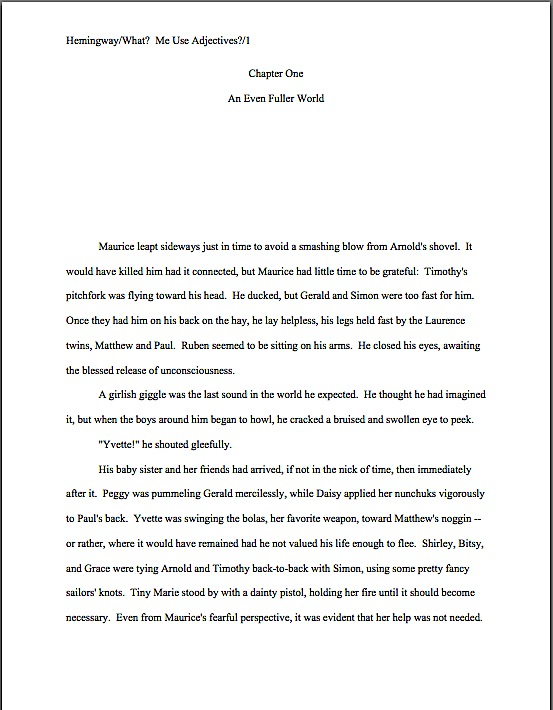When we left off last time, we were in the throes of discussing the options open to the pitcher or querier so successful in presenting her book concept that an agent says, “By gum, I not only want to see this manuscript — because, contrary to surprisingly pervasive belief amongst writers’ conference attendees, no agent in his right mind would agree to represent a book project by a non-celebrity without first reading some of that writer’s prose — but I want to be the only agent considering representing it.” While the standard first response to this is, as one might imagine, to jump for joy, caper in the streets, and rush to send off the requested materials before the agent could possibly change his mind, the third of those initial impulses is not always in the writer’s best interest.
How so, you ask mid-caper? Well, most requests for exclusive peeks at manuscripts or book proposals do not come with a time limit. The agent simply specifies that he would like not to be competing with other agents to represent the project, and that’s it. And because this is, let’s face it, a flattering request, it doesn’t occur to most writers to say, “That’s fine — for six months,” rather than some stripe of “YES! Whatever you want! I want to kiss the hem of your garment for paying this much attention to my work! May I name my firstborn child/next beloved pet/a small tropical island after you, as an appropriate token of my gratitude?”
It always gives me joy to see a talented writer this happy, but having heard the latter response issuing from aspiring writers’ gullets hundreds, if not thousands, of times in recent years, I feel compelled to tell you that this is usually not the best strategic response to such a request. Oh, you can dance little jigs and alarm your neighbors with shrieks of joy with my blessing. Just be aware that granting an open-ended exclusive presents the submitter with the fewest follow-up options.
If all goes well, that might not be an issue, but remember, an agent in the habit of asking for exclusives may well do so habitually. It may be agency policy, in fact. Even if it isn’t, the request does not constitute a guarantee that the submission will be moved up to the front of the agency’s reading queue.
So I ask you to stop tap-dancing on that coffee table long enough to consider: how many weeks, months, or years would it take before you, cavorting submitter, would come to regard having granted that exclusive to be an actual liability? And what if — brace yourselves — you never heard back from the exclusive-requesting agent at all?
That immense, sky-shattering moan you just heard emitted from the mouths of those that found this post in the archives after a frantic search once they realized that the exclusive they granted some weeks/months/years ago did not in fact come with an expiration date. Those that looked up this post after having granted an open-ended exclusive, then received a materials request from another agent, probably contented themselves with punching the nearest wall.
To help those tortured souls feel better, as well as to edify of those of you that have not yet fallen into either of these categories, let me hasten to add that most of the time, writers find themselves in these predicaments through no fault of their own. They may not have thought through the implications of the exclusive before they granted it, or, more commonly, simply were not aware that there could be negative fall-out from something as inherently wonderful as professional interest in their writing.
In fact, under ordinary circumstances, giving multiple pitches at a conference or organizing query timing to maximize the probability that more than one agent will want to be reading all or part of one’s manuscript at any given time is quite sensible. Ideally, an agent-seeking writer should want to have several agents interested simultaneously; it’s always nice to be able to choose between competing offers.
It can happen, but it doesn’t happen all by itself. The writer has to plan for it.
I speak from personal experience here: I had three offers on the table and manuscripts out with four more agents when I decided to go with my agency. Admittedly, my memoir had just won a major contest at a writers’ conference that at the time habitually made a point of rounding up the winners in its top categories and herding them into a room stuffed to the gills with agents, but even so, I was the only winner that year who ended up garnering an offer of representation from one of those agents, much less several. (Word to the wise: it’s not all that uncommon for even agents who attend many conferences not to pick up new clients at any given conference. Before you plunk down the sometimes hefty conference registration fee, you might want to ask point-blank how many of last year’s attending agents actually signed a writer met that that conference.)
That wasn’t accidental: I had been fortunate enough to have friends who had won that contest in previous years, and mirabile dictu, I had even listened to their advice. I already knew not to grant an exclusive to anyone; that would have tied my hands and meant, effectively, that if the first agent who asked for an exclusive (and several did) made an offer, I wouldn’t be able to sound out the others before saying yes or no.
I’m sensing some bewilderment amongst those of you who walked in halfway through this discussion, am I not? “Wait just a jealousy-inducing minute, Anne!” some of you cry. “Why precisely would granting an exclusive to the first agent that tackled you after you accepted your award have been a bad thing? If that agent said yes, you’d have an agent!”
I see where you’re going with this: it would in fact have saved some effort on my part. Let’s tease out the logic: an exclusive is an arrangement whereby a writer allows an agent to read a particular manuscript while no other agent will be reviewing it. The agent requests an exclusive because she would prefer not to compete with other agents over the manuscript; the writer agrees, presumably, because if this agent says yes, he will neither need nor want to approach other agents.
That’s dandy — if the exclusive-requester happens to be the agent of one’s dreams. But, frankly, there were a lot of agents at that conference that had great track records for selling memoir. Because I pitched to all of them and had not hung all of my hopes on conference pitching, I woke up the following Monday with sixteen requests to read the book proposal.
Did responding to all of those requests simultaneously constitute a heck of a lot of work for me? Of course, but remember, the goal is just to get any agent to say yes; it’s to track down the best agent for the project. While it’s certainly possible to listen carefully to what the agents to whom you are planning to pitch say on the conference dais about how they handle book projects in general, a writer doesn’t usually have the opportunity to hear how a specific agent would handle her book until after an offer of representation is already on the table.
Half of you zoned out while reading that last paragraph, didn’t you? “Sixteen requests for pages? How on earth did that happen?”
Ah, but it didn’t just happen. Because I had seen past contest winners stand around and wait for agents to seek them out, a hopeful passivity that tended to leave them walking out of the awards ceremony with no requests for pages at all, I knew that if the win were to do me any good — and not all contest wins do, even major ones — I would need not only to speak with every agent at that conference, but follow up with a blizzard of submissions. I also knew that while I was making it show manuscript pages at some agencies, I should be continuing to query others. Just in case.
Once this multi-pronged strategy paid off in the form of offers, though, I realized I had a dilemma: each of the three agents professing eagerness to represent my work was equally qualified to do it. Oh, they had different styles, as well as different tastes, but their connections were more or less identical. So I had to ask myself: what do I want out of the writer-agent relationship other than the agent’s having the connection, energy, and will to sell my books?
Hadn’t thought about that, had you? Almost no aspiring writer does. Or about the logical follow-up questions: what factors would make an agent the right one for my writing, other than a desire to represent it? When you get right down to it, what makes one agent different from another?
The vast majority of pitchers and queriers do not give serious thought to this question, interestingly, until they find themselves faced with multiple submission requests. Oh, the ones who do their homework ponder what various agents represent, as well as their track record for selling the work of first-time authors (usually quite a bit more difficult than convincing an editor to acquire a book by someone who already has a demonstrable audience; that’s why many agents choose to represent only the previously-published). But let’s face it, these examinations are really geared to the question how likely is this agent to want to represent me? rather than is this the best conceivable agent to represent my writing?
Let that bee buzz around your bonnet for a while. The resulting synaptic activity will be useful in pondering the implications of the rest of this post — and, for those of you that will dig this post out of the archives because you’re frantic to find out how to handle conflicting requests from agents, help you figure out what your next step should be.
Typically, writers don’t give serious thought to the what do I want from an agent, other than willingness to represent me? conundrum unless they find themselves in one of three situations. First, our questioner from last week, unsure what to do because she had already agreed to let one agent sneak an exclusive peek at her manuscript, but another agent had asked afterward to see it non-exclusively. Second, someone like me, the aggressive multiple pitcher/querier/submitter who hears back positively from several agents. Third, an already-agented writer who finds herself in the unenviable position of having to find a new agent.
Oh, should I have warned you to sit down before I brought up that last one? “Oh, ye Muses!” pitchers and queriers everywhere shout, breathing skittishly into paper bags in an attempt to cease hyperventilating. “You mean that it’s possible that I might have to go through this hideous process more than once?”
Actually, if you are a career writer, it’s fairly probable. I don’t want to frighten you, but in the current extraordinarily tight literary market, agents have been known to change specialties. They occasionally decide to leave the biz. Agencies do go under, or merge. And as much as I would support any really good agent’s application to Olympus for immortality, they do occasionally shuffle off this mortal coil. Under any of these conditions, an agented writer might well need to seek out new representation.
If your breathing has returned to normal, though, may I add that sometimes representation relationships just don’t work out? It’s quite simply harder to sell books than it used to be; inevitably, that’s going to cause some writer-agent relationships to fray. Than, too, people’s interests change over time: what constituted a great fit five years ago might very well not be five years hence.
See why I want you to start thinking about qualities you want in an agent before you’re fielding offers?
Since an already-agented writer’s plunging back into the pitching and querying phrase is an extremely complicated kettle of worms, let’s stick for now with the dilemma facing the writer in one of the other two situations. What’s an (extremely fortunate, by any standard) writer — let’s call her Hortense — to do if other agents want to take a peek at a manuscript that Agent #1 has asked to see exclusively?
Well, the first thing Hortense should do is scour the actual wording of the request for exclusivity. What honoring it means vis-à-vis approaching other agents really depends upon the terms of the exclusivity agreement. Unless that exclusivity agreement was open-ended — as in the agent has until the end of time to make up her mind about whether to represent the book in question — the writer has every right to start sending out her work to other agents the instant the exclusive expires.
But let’s assume for the moment that Hortense was one of the tap-dancing many that acted upon an open-ended exclusive request, no questions asked. It has now been three months, and she has other requests for manuscript pages in hand. Should she
(a) Silently abide by her commitment to Agent #1 for the duration of the agreed-upon period of exclusivity, even if that means waiting forever, because ethically, she can do nothing else?
(b) Abide by her commitment to Agent #1, but since a reasonable period of time has passed, send a polite reminder after a reasonable period, saying that because other agents are clamoring to see the manuscript, she would really, really like to hear back soon?
(c) Abide by her commitment to Agent #1, but send a series of increasingly vehement protests over how long Agent #1 has had the manuscript?
(d) Follow tactic (c), but begin sending those protests three weeks after the exclusive began?
(e) Abide by her commitment to Agent #1 as long as nobody else expresses interest, but instantly e-mail him the moment she hears from Agent #2, asking #1 if it’s okay to disregard their exclusivity agreement, since the situation has changed?
(f) E-mail Agent #1 as soon as Agent #2′s request arrives, informing #1 that she’s sending the manuscript to somebody else, as if the exclusivity agreement did not exist?
(g) Follow the essential outlines of (f), but embrace this missive as an opportunity to inform Agent #1 that he’s a slowpoke, dream-assassin, or worse?
(h) Send out the requested materials to Agents #2, #3, #4, as they come in, without telling Agent #1, because unless one of them offers to represent her, she’d never have to confess what she has done?
(i) Wait another two or three months, then pursue tactic (h)?
(j) Wait as long as she can possibly stand it, then send a formal, dignified e-mail to Agent #1, thanking him for his interest, but saying that she’s terminating the exclusive?
Oh, you may laugh at some of those options, but I assure you, submitters facing this conundrum routinely engage in all of them. And you or someone you know may well have engaged in one or more of them. If Hortense chose
(a) and are still in the midst of waiting indefinitely, she has good manners. Her mother and I are proud — but it hasn’t really solved Hortense’s problem, has it?
(b) and informed Agent #1 that you would like to hear back, Hortense still has pretty good manners. Provided, of course, that she waited a few months before she pursued this option, and engaged in it only once.
(c) and kept her word not to send out her work, but sent out querulous complaints about it, well, Hortense is like most exclusive-granters. Ultimata almost never work, but it probably made her feel better.
But confidentially to those of you that followed Hortense down this ill-advised path: after the first one or two messages, you stopped hearing back, right? Is it a better use of your energy to pick a fight with someone you want to be on your side, or to move on?
(d) and began sending those protests three weeks after the exclusive began, Hortense’s submission was probably pulled out of consideration on that basis alone. She should consider the submission dead and move on with no further comment.
(e) and instantly e-mailed Agent #1 to ask if it was okay to disregard her exclusivity agreement, since the situation had changed, Hortense doesn’t have a clear understanding of how exclusives work. #1 would be within his rights not only to say no, but to be a trifle insulted.
Why? Chant it with me now, campers: what an exclusive means in practice is that the writer guarantees that nobody else will be in the running while the requesting agent is pondering the pages. Essentially, the pursuant of (e) is saying, “You didn’t REALLY mean that, did you? How could you have, when it’s not in my best interest that you did?”
Not going to fly, I’m afraid. By definition, once Hortense has granted an exclusive, she must abide by its terms. So she really has no excuse for
(f) e-mailing Agent #1 as soon as Agent #2′s request arrived, informing #1 that she’s sending the manuscript to somebody else. Again, Hortense would be displaying that she just doesn’t get the whole exclusivity thing. And if she compounded the problem by
(g) following the essential outlines of (f), but embrace this missive as an opportunity to inform Agent #1 that he’s a slowpoke, dream-assassin, or worse, was she raised by wolves? Apart from the inherent rudeness of such an approach — which, among other things, demonstrates an expectation that #1 would have dropped all of his other duties to pay attention to her submission — in what imaginable scenario would #1 respond positively to such an accusation?
If Hortense is the strong, silent type, she could pursue (h), and send out the requested materials to Agents #2, #3, #4, as they come in, without telling Agent #1, but that would be unethical. Even if she honestly didn’t understand what an exclusivity agreement meant when she said yes to it, it isn’t fair to any of the agents involved. However, if she
(i) waited another two or three months, then pursued tactic (h), it would at least be understandable. But she would have to write off Agent #1 at that point, anyway, so why not
(j) send a formal, dignified e-mail to Agent #1, thanking him for his interest, but saying that since it’s been six months, she’s terminating the exclusive.
I see some of you shaking your heads. “But Anne, I’m confused. It seems as though this is a no-win situation for Hortense. She can ask for an update, but if the agent’s too busy to respond or works at an agency that simply doesn’t tell submitters when they’ve been rejected, her hands are tied by his silent, aren’t they? So is her only winning move not to play the exclusive game at all?”
Not necessarily; if she would sign with Agent #1 with no hesitation if he offered representation and he prefers to read exclusively, saying yes might well make sense. But she cannot ethically retract that agreement after the fact, except to pull her submission out of consideration at #1′s agency. Until she does that — or enough silent time has passed that she has good reason to consider the submission dead — she cannot legitimately send that manuscript elsewhere.
That means — and this seems to come as a surprise to many submitters — that she also cannot ethically grant an exclusive request if any other agents have the manuscript. Because that point is so widely misunderstood, let me state it as an aphorism: by definition, a writer cannot grant an exclusive if any agent is currently reading any part of the manuscript in question; in order to comply with a request for an exclusive, the writer must wait until all of the agents reading it at the time the exclusivity request arrived have informed him of their decisions.
But let’s get back to Hortense’s underlying problem: what happens if an agent who asked for an exclusive doesn’t get back to the writer within a reasonable amount of time? Is the writer still bound by the exclusivity agreement? Or is there some point at which it’s safe to assume that silence equals thanks, but we’re not interested rather than hold your proverbial horses — we haven’t gotten around to reading it yet?
The short answers to each of those last three questions, in the order asked: it depends on the terms of the original agreement; it depends on the terms of the original agreement; it depends on the terms of the original agreement.
Why? Shout it along with me now, campers: how a writer can ethically respond to any of these situations rests entirely upon whether he had the foresight to set an end date for the exclusive when she first agreed to it. If an exclusive is open-ended, the writer cannot ethically send out requested materials to other agents until one of two things happens: the exclusive-requester informs the writer that she has rejected the manuscript, or so many months have passed without word from the agent that it’s safe to assume that the answer is no.
Even then — say, six months — I’d still advise Hortense to send an e-mail, asking if Agent #1is finished with the manuscript. It’s only polite.
Or she could have avoided this dilemma entirely by hedging her bets from the get-go. Hortense could have granted the exclusive, but send the manuscript along with a cover letter that mentions how delighted she was to agree to a three-month exclusive. Agent #1 could always have come back with a request for more time, but at least poor Hortense wouldn’t be left wondering six months hence whether she would offend #1 by moving on.
Being ethical is a tough row to hoe, in short. “But Anne!” exclaim aspiring writers who want there to be more options than there actually are. “Why should I borrow trouble? Surely, you don’t expect me to run the risk of offending an agent by implying that he’s not going to get back to me in a timely manner?”
Hey, I don’t expect anything; do as you think best. I’m just the person that aspiring writers keep asking — on average, about 23 times per month — how to get out of an exclusive that hasn’t panned out as they had hoped.
To help you weigh the relevant risks, let’s look at the phenomenon from the other side of the agreement. Generally speaking, agents will request exclusives for only one of three reasons: they fear that there will be significant competition over who will represent the project, they don’t like to be rushed while reading, or it is simply the agency’s policy not to compete with outside agencies, ever.
Do I feel some of you out there getting tense over that third possibility, doing the math on just how many years (if not decades) it could take to make it through your list of dream agents if you had to submit to them one at a time? Relax, campers: requests for exclusives are actually fairly rare.
Why rare? Well, the first kind of exclusive request I mentioned last time, the one Agent A might use to prevent Agents B-R from poaching your talents before A has had a chance to read your manuscript (hey, A’s desk is already chin-deep in paper), tends to be reserved for writers with more than just a good book to offer. Those that happen to be celebrities, for instance, or won a major contest fifteen minutes ago.
Basically, the agent is hoping to snap up the hot new writer before anybody else does. Or before the HNW realizes that s/he might potentially be in the enviable position of being able to choose amongst several offers of representation.
Which brings me back to those knotty questions I asked earlier in this post: what do you want from your future agent, over and above the ability and willingness to sell your books for you? Since pretty much every respectable agency offers the same service, such choices are often made on the basis of connections, how well-established the agency is, or even how well the writer and the agent happen to hit it off.
Agents, as it happens, are aware of all that. If an agent fears that the other contenders might be able to offer a rosier prospect (or, in a conference situation, just have more engaging personalities), it might well be worth his while to buttonhole the HNW and get her to commit to an exclusive before anyone else can get near enough to ask.
So if you suddenly find yourself the winner of a well-respected literary contest or on the cover of People, remember this: just because an agent asks for an exclusive does not mean you are under any obligation to grant it. Because the writer owns the manuscript, she, not the agent, is technically in control of an exclusivity agreement.
I know, I know: aspiring writers are seldom used to thinking of the submission process this way, but the agent is only allowed to read your manuscript because you say it is okay, right? While Hortense would not have been in a position to set conditions on a submission if there were no question of an exclusive peek (indeed, the average agency reviews far too many manuscripts for any given submitter to be in a position to bargain at that point), she was the person in the best position to determine whether granting an exclusive was in her manuscript’s best interest.
Which means, of course, that you are. Yes, even if the alternative is not allowing the exclusive-seeking agent to see it at all.
It doesn’t always make sense to say yes to a request for an exclusive. If several agents are already interested in your work, it might not be. The implicit understanding in an exclusive-read situation is that if the agent makes an offer, the writer will say yes immediately. The question, then, you should ask yourself before you grant an exclusive is not “Is this an agent?” but “Is this the best agent for my work?”
If you would like to be in a position to compare and contrast offers from different agents, you should be hesitant to grant exclusives. Or to say yes to them before you’ve heard back from another agent whom you feel would be a better fit for your manuscript.
Does that loud choking sound I just heard mean that some of you weren’t aware that a writer doesn’t need to drop everything and respond to a request for an exclusive immediately? It’s not as though the request is going to expire five days hence; unless an agent actually asked you to overnight your manuscript (rare), she’s probably not expecting it right away. In the first heat of excitement, it’s tempting to get pages out the door that very day, but again, it might not be in your book’s best interest.
Besides, if you attach your manuscript as a Word attachment to your same-hour reply to that nice e-mail from Millicent, when will you have time to review your submission IN ITS ENTIRETY, IN HARD COPY, and OUT LOUD, to catch any previously-missed typos or rejection triggers?
Like it or not, timing submissions is a matter of strategy. If you are already murmuring, “Yes, by Jove: I want to query and submit in a manner that maximizes the probability to be fielding several offers at once!”, then I suggest you consider two issues very carefully before you decide which agents to approach first. Fair warning — before you can answer either, you’re going to need to do a little research.
(1) If an agency has an exclusives-only policy, should it be near the top of my query list, potentially forcing me to stop my submission process cold until they get back to me? Or are there agents who permit simultaneous submissions that I could approach all at once before I queried the exclusive-only agency?
(2) Is there an agent on this list to whom I would be OVERJOYED to grant an exclusive, should she happen to request it after seeing my query or hearing my pitch, or would I be equally happy with any of these agents? If it’s the former, should I approach that agent right off the bat, before sending out queries to any exclusives-only agents on the list?
And the disgruntled murmur afresh: “Okay, Anne, I get it: an ounce of prevention is worth a pound of cure. But where does this leave Hortense and the many, many other writers out there who have granted exclusives to the first agent who asked, only to find themselves chafing under the agreement down the line, when other agents asked to see the manuscript? Can’t you dole out just a few ounces of cure?”
Again, it depends: why did the agent asked for the exclusive in the first place, and how long it has been since the writer granted it?
I know, I know: I’m asking a lot of questions, but there’s a lot to consider here. That’s why I’m hoping that most of you are reading this before you find yourself in Hortense’s position. Resting uncomfortably within the horns of a dilemma is seldom conducive to thoughtful pondering. Keep up the good work!



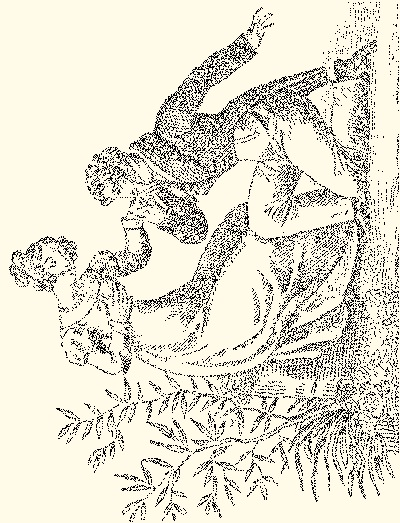






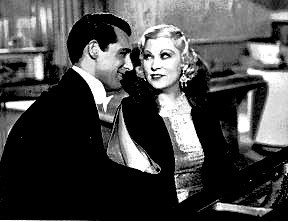
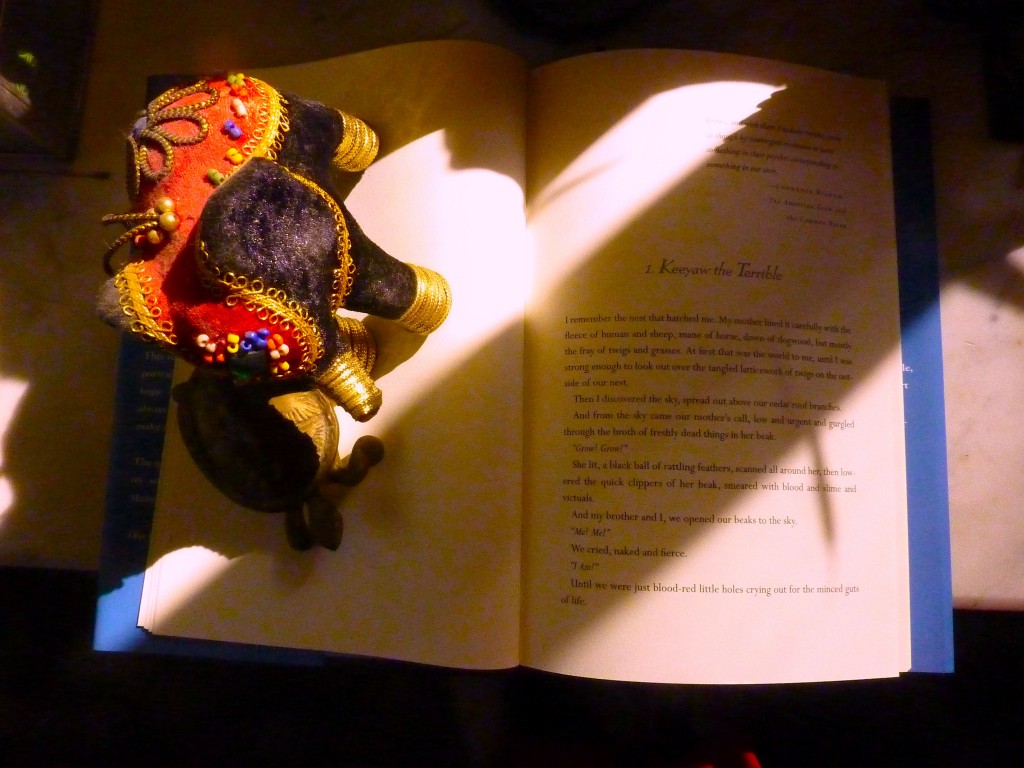

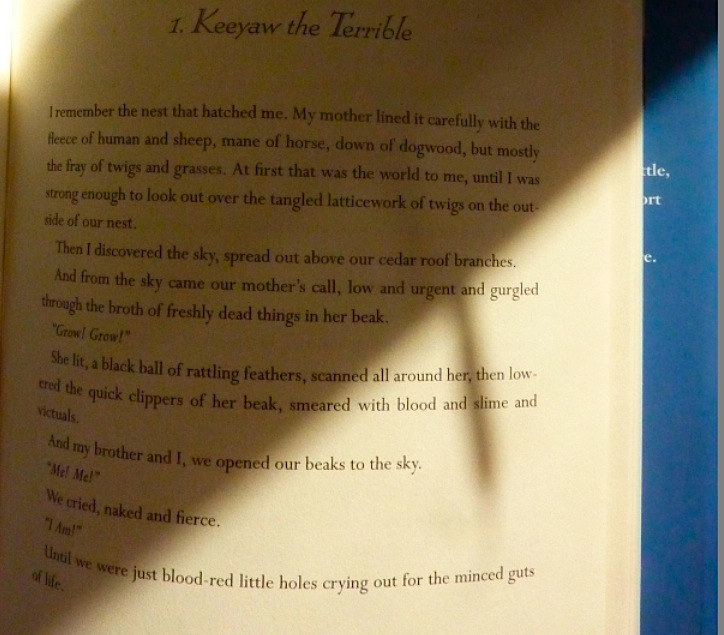
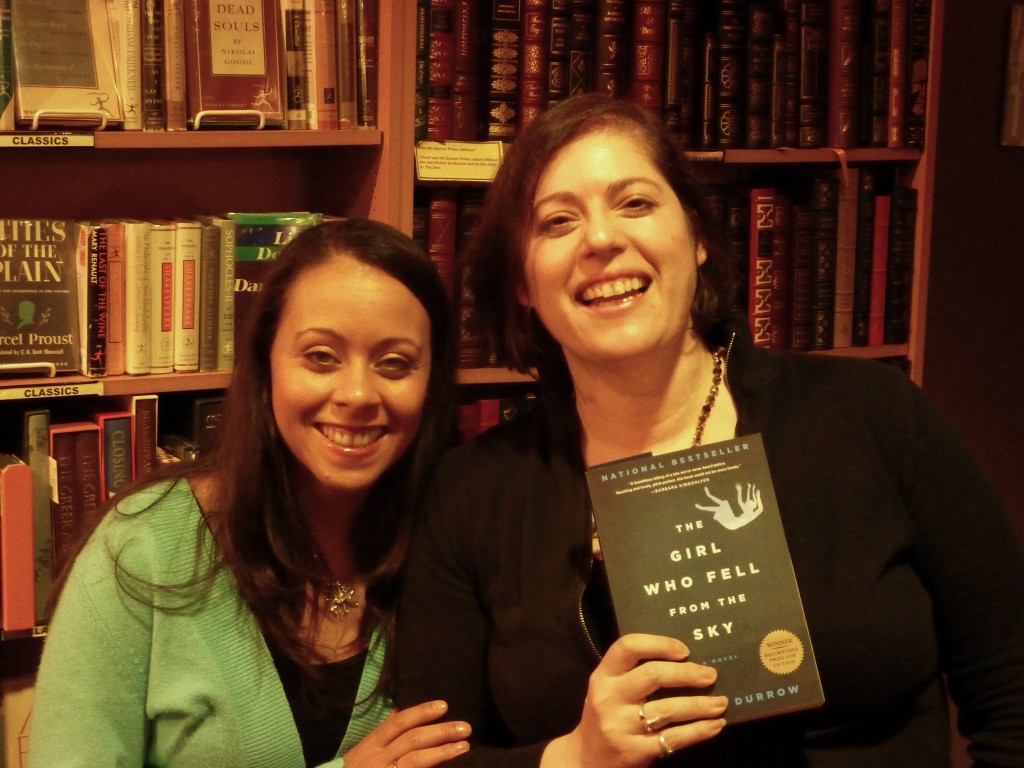
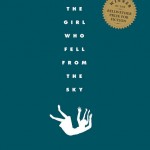 Rachel, the daughter of a Danish mother and a black G.I., becomes the sole survivor of a family tragedy after a fateful morning on their Chicago rooftop.
Rachel, the daughter of a Danish mother and a black G.I., becomes the sole survivor of a family tragedy after a fateful morning on their Chicago rooftop. 
